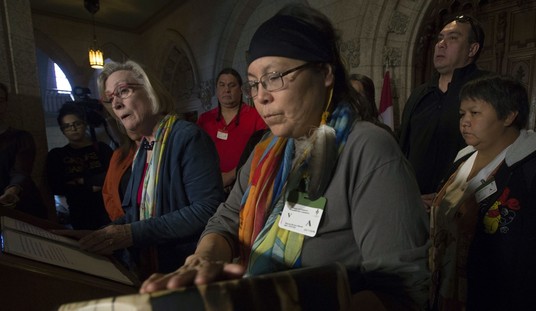On May 7, as I began to prepare for bed, I looked at the calendar in my bathroom and realized it was the dawn of V-E Day. I am an insomniac and the birds were already singing when I put my trash outside the front door for Friday collection.
Because I did not have a yahrzeit candle to commemorate the anniversary of the loss of a loved one, I decided to light a large scented candle to commemorate those young British, American, Australian, and other Allied forces who in June 1944 would have been praying or smoking or quaking with insomnia and writing what they knew would be their last letter home. Indeed it would not be until May 1945, long after D-Day, that victory in Europe could be declared.
Going outside to put my trash bag on the pavement, I heard pop music playing softly in one of the flats in my block. In this street are many successful and happy people who I doubt, as they ventured out on May 8, 2009, would have the slightest idea it represented the sixty-fourth anniversary of the European victory over Hitler. I doubt they will realize that V-E Day forever marks the threshold of civilization rescued by Winston Churchill and — love him or hate him — Franklin Roosevelt, set against the very real possibility of descending into the Valhalla of the Thousand-Year Reich. Fifty million died so freedom from tyranny could prevail. Does anyone care anymore? Will there soon be a day established by the politically correct brigade to feel guilty about the dead of the SS and to apologize to the Axis for waging war at all?
On that eve of V-E Day, May 7, I went inside and stood for a moment with my hands clenched. I closed my eyes and prayed for the souls of the young men from my London street who may have been sent out to fight on D-Day. It sent a chill through me: someone from this very block of flats may have been sitting shaking with fear sixty-five years ago as he watched the dawn break in Portsmouth Harbor. This could have been his last Channel crossing, but if he had luck on his side he might have made it to France only to be killed alongside his Yank, Aussie, and Kiwi buddies in the horrendous push inland in Operation Market Garden and the Hurtgen Forest.
How deeply ingrained in my late mother’s memory was the sight of thousands of young men leaving Camp Pickett, Virginia, where she was stationed as a WAC (Women’s Army Corps), these lads only to die a few weeks later on Omaha Beach. She received parcels in the weeks after D-Day from GIs sending her tins of tuna and items for their parents in towns with names like Bassett, Nebraska, and Perkasie, Pennsylvania, and Hopatcong, New Jersey; they said they knew they would never come home and their folks needed these precious things more than they did.
Five years ago I went with a group of British and American veterans to Normandy to commemorate the sixtieth anniversary of the D-Day landings. On the special train coach in the fog and cold on the way from Paris to Omaha Beach were hundreds of veterans and their families, but one could hear a pin drop. The men with their hearing aids and worn canes and wispy white hair sat deep in contemplation; I could barely imagine the horrors conjured up by this journey and the sorrow they had carried with them for six decades.
Many of these frail men, some in their eighties, had never been back since 1944 and wept quietly as they found the gravestones of their platoon members, boys whose dreams had been frozen forever on that French shore in Nazi-occupied Europe. On that day of my pilgrimage in 2004 Presidents Chirac and Bush gave moving speeches and several British and American veterans stood at attention by the battery units as the twenty-one gun salute boomed across the countryside. Traveling around the remote farmland one saw endless little Union Jacks and American flags outside cottages, and one was keenly aware that these tattered emblems may have survived from V-E Day itself in 1945.
Perhaps I am feeling D-Day so very deeply in 2009 because of the relentless battering Americans have taken on the chin overseas in recent years. I am also aware of the fact that there has been minimal mention of V-E Day on British radio or television and there has even been an uncomfortable reluctance to allocate government or National Lottery funds to take the dwindling contingent of D-Day veterans over to Normandy on June 6. That there was any public discourse about this at all has left a bitter taste in the mouths of many veterans and their kin.
In 2007 I visited Madingley Cemetery, a graveyard of 3,800 American airmen with a wall commemorating some 5,100 American pilots and coast guardsmen who disappeared or died protecting Britain’s shores. At Duxford Airbase there is a plaque commemorating the lives of 30,000 American airmen who died during the Second World War. Soon it will be June 6. At this time of year, because of the vivid memories my mother left behind about the dead of D-Day, I cannot sleep and often drift off only when the light is clearly visible behind my curtains. The birdsong is sweet. In my native U.S. I hope the television networks will remember the men who fell in that terrible carnage in Normandy, but it seems of late the British networks refrain from dwelling on it.
In November 2007 I attended a conference in Newcastle-upon-Tyne that happened to take place over Remembrance weekend. One of the conference speakers, an Anglo-Muslim activist, said she had to make it clear to this audience that she regarded the pilots of wartime in as negative a light as the audience might view a suicide bomber who had strapped himself with explosives. I could barely contain myself. I jumped up and pointed out to her that had those young British and American pilots not succeeded, Hitler would have taken over the world and she would most likely not have been here today.
Lest any of us forget the sacrifice made by the men and women of V-E Day and of D-Day as we scurry around the supermarket, let us stop for a moment to remember and to thank them in our hearts. The freedom we enjoy today in this green and pleasant land called Britain, in America, and around the world is the gift they bestowed upon us; their supreme sacrifice guaranteed that democracy would endure.









Join the conversation as a VIP Member